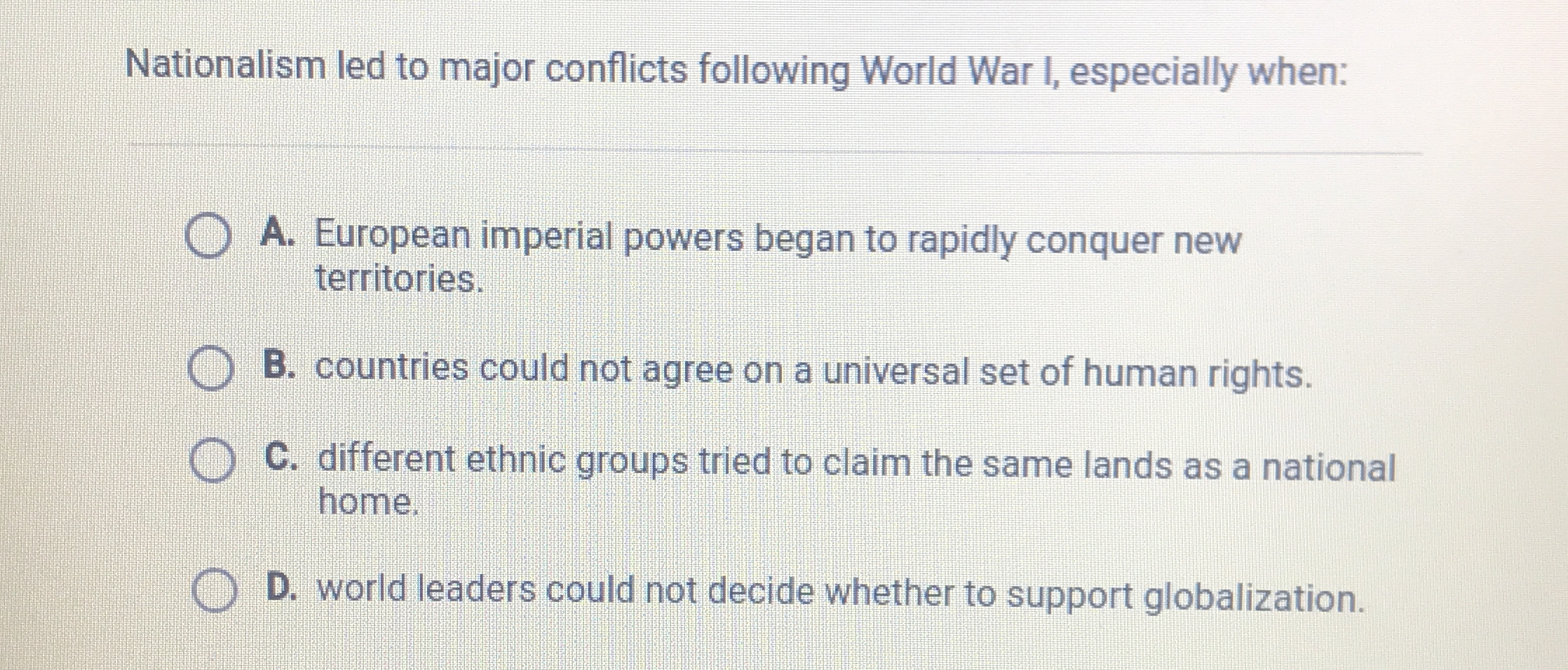Nationalism led to major conflicts following World War I, especially when: A. European imperial powers began to rapidly conquer new territories. B. countries could not agree on a u... Nationalism led to major conflicts following World War I, especially when: A. European imperial powers began to rapidly conquer new territories. B. countries could not agree on a universal set of human rights. C. different ethnic groups tried to claim the same lands as a national home. D. world leaders could not decide whether to support globalization.

Understand the Problem
The question asks about the implications of nationalism after World War I and presents four options to explain how it led to major conflicts, implying a historical analysis is required.
Answer
C. different ethnic groups tried to claim the same lands as a national home.
The final answer is C. different ethnic groups tried to claim the same lands as a national home.
Answer for screen readers
The final answer is C. different ethnic groups tried to claim the same lands as a national home.
More Information
Following World War I, nationalism often fueled conflicts as ethnic groups sought to define or expand their national territories, leading to disputes and territorial claims.
Tips
A common mistake is not differentiating between imperial conquest and internal ethnic conflicts.
Sources
AI-generated content may contain errors. Please verify critical information